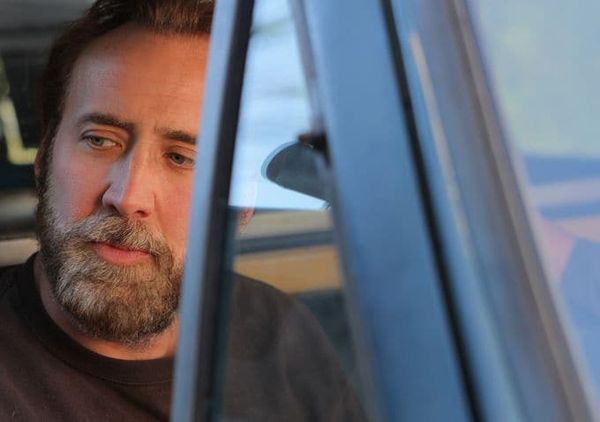Eye For Film >> Movies >> Joe (2013) Film Review
Joe
Reviewed by: Owen Van Spall

Like his previous lo-fi effort Prince Avalanche, David Gordon Green’s new drama Joe exploits the harsh-yet-beautiful atmosphere of the Texas locale. Joe was (although it is hard to believe given how primeval some of these rural locations feel) shot entirely in and around the city of Austin, where Gordon Green himself is very much part of the city’s film scene; Austin seems to be a small and reliable factory for producing talents such as Richard Linklater (whose Boyhood is out in UK cinemas now). Most of the cast and production team working on Joe were locals, with star Nicholas Cage being the ‘outsider’. This evocative sense of place is one of the film’s strongest aspects, though it features three excellent lead performances.
The story, based on the novel from Larry Brown and adapted by Gary Hawkins, weaves together the interconnected fates of Joe Ransom (Cage) and teen Gary (Tye Sheridan, who was excellent in Jeff Nichols' Mud and acquits himself well here), who are both living hardscrabble out in the backwoods of Austin, Texas, although Gary is in far worse circumstances than the titular character. Gary, we learn early on, is the sad product of two alcoholic parents whose latest residence is a condemned and near-collapsed clapboard bungalow buried in weeds. His father Wade (an astonishing one-shot performance from non-actor Gary Poulter, who was homeless and died shortly after filming ended) is a shambling testament to the ravages of alcohol abuse, though his skeletal, bleached-dry state isn't so crippling that he can't show Gary the back of his hand and steal any money he makes.

During his time in the forest Joe, who is working as the foreman of a team clearing weak trees for a local corporation who want to replant, comes across the youngster. Sensing something he either likes or sympathises with about the eager boy, Joe takes him on as a worker and, inevitably, under his wing.
Initially presented to us as a bear-like but affable old-school guy who promises Gary a fair day’s pay for a fair day’s work, Joe is ultimately revealed to be a more volatile character with something of the ‘last of the cowboys’ about him. Several of the forest work team whisper to Gary about Joe’s past, granting him legendary status, reminding him to ‘always looks Joe in the eye, he likes a man to look him in the eye when he’s talking to him.’
Joe’s routines: always on time, carefully noting the pay checks of each of his team members, his regular trips to the whorehouse following moments of high stress, end up feeling more like a tightly-managed and desperate way of diverting his toxic levels of rage away from hurting someone and ending up back in the slammer as opposed to just simple learned habits. There is plenty of that good old ‘deep fried Southern’ flavour here to lap up. Joe drinks hard liquor and seems to only live on cigarettes, he wears a lot of faded denim, and rolls around in a battered pick up truck that looks older than him. He, and many other characters, are all packing heat and hunting knives.
The accents and cadences of the neighbourhood folk we see are so strong that in some cases it is hard to understand all of their dialogue. The locations: houses barely more than shacks with newspapers instead of window panes, local gas stations piled high with multi-coloured junk, and in one case, a surreal clearing full of upturned abandoned boats, have a ‘lived in’ air of authenticity. This is a rough land full of tough-living types, real folk on the fringes. It is an almost mythic place.
Cage, notorious at this point in his career for his ability to amp things up to 11, is well-suited for the role of Joe, a character designed in such a way that the more restrained he is, the more you are left dreading (but also secretly yearning for the moment) when the fireworks will go off. And go off they do as, inevitably, the film moves towards a violent climax. Whether it be redemption or ruin, no matter how hard Joe tries to avoid being set off, trouble just comes his way as if the Devil himself willed it. The fact that Joe’s job means intentionally poisoning older trees so that younger trees can grow up offers up all kinds of symbolism about the kind of tragic father figure Joe is likely to end up being to young Gary.
The ending you can see coming a mile away, but this is still an atmospheric, well shot (kudos to cinematographer Tim Orr) and well-acted trip down South with a pleasing, gritty B-movie flavour.
Reviewed on: 22 Jul 2014


















